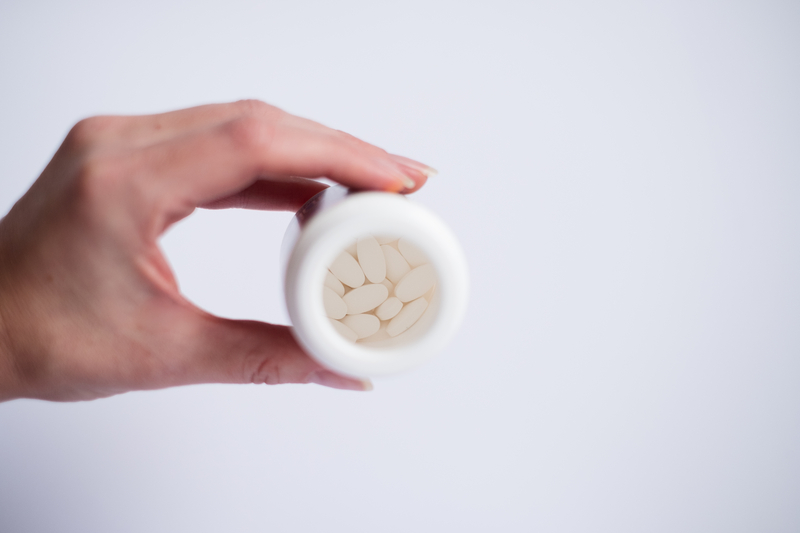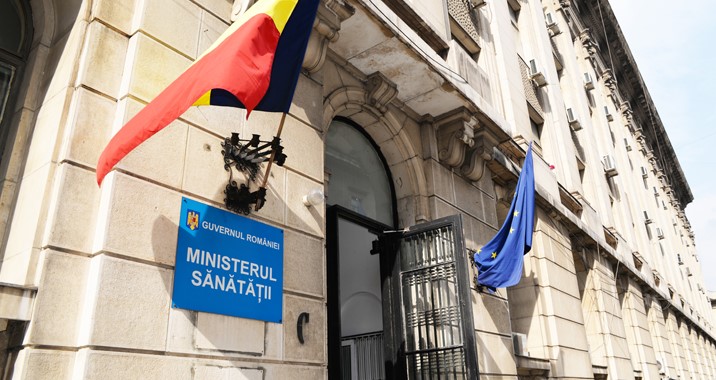
Only 383,889 potassium iodide pills out of 30 million purchased by the authorities have so far been distributed to Romanians in a free campaign that is being heavily promoted by the minister himself, Alexandru Rafila, according to official data exclusively obtained by HotNews.ro. A more than modest percentage – only 1.27% of all purchased pills.
HotNews.ro requested the Ministry of Health to transmit, based on Law 544/2001 on access to information of public interest, how many people were given potassium iodide tablets 65 mg according to a doctor’s prescription as part of the free campaign of the Ministry of Health, as well as how many tablets of potassium iodide 65 mg were issued for free in the Ministry of Health campaign and how many are still available.
383,889 pills were picked up by 218,781 Romanians
The data sent by the Ministry of Health upon request to HotNews.ro does not cover September, but is valid until August 31, 2022, but it is the most recent data centralized and provided by the authorities.
1. Question of HotNews.ro:
- How many people have received potassium iodide tablets of 65 mg as part of the free promotion of the Ministry of Health to date?
The answer of the Ministry of Health:
- As of 08/31/2022, 218,781 people applied for and collected potassium iodide tablets from designated pharmacies according to a family doctor’s prescription.
2. HotNews.ro question:
- How many potassium iodide 65mg tablets have been distributed free of charge as part of the MOH campaign to date and how many are still available?
The answer of the Ministry of Health:
- According to the results of the centralization of health care reporting, as of August 31, 2022, 383,889 tablets of potassium iodide were withdrawn by the population from established pharmacies based on a family doctor’s prescription. The total number of potassium iodide 65 mg tablets distributed by the health departments of the county and the city of Bucharest to pharmacies is 7,000,000 tablets.
The authorities purchased 30 million tablets for 6 million euros
It should be noted that the number of tablets distributed by the DSP to pharmacies is 7 million, but the total number of purchased tablets, which Alexandru Rafila publicly spoke about in the spring, is 30 million.
In April, responding to a journalist’s question, the Minister of Health clarified that the 30 million tablets of potassium iodide urgently produced by Antibiotice Iași cost “about 30 million lei”, which is equivalent to approximately 6 million euros.
At that time, Rafila also stated that the tablets of potassium iodide were purchased not by the Ministry of Health, but by the National State Reserve Administration.
Antibiotice Iași urgently produced 30 million tablets of potassium iodide 65 mg in March.

Iodine tablets / Photo: Jaanall / Dreamstime.com
Rafila is “with confidence” waiting for the numbers in September
Alexandru Rafila talked about the iodine tablets on Sunday night in his show on Antena 3. He did not specify the number of tablets distributed, but only the number of people who took iodine tablets for free in pharmacies: 1,200 in July and 230,000 in August, out of 7 million people who have the right, said the Minister of Health.
Rafila admitted it was “still not much”, but said he was “with confidence” waiting for the September numbers.
How Rafila urged “everyone” to increase iodine and how Cholaku asked him to change the communication team
The distribution of iodine tablets in pharmacies began only in late June and early July, after a months-long dispute between the Minister of Health and family doctors, who refused to distribute the tablets this spring, fearing that traffic jams and iscate bureaucracy would block the operation of their offices, in any what a difficult time – wave of viruses and flu, covid-19, covid-19 testing, vaccinations, consultations, prescriptions, referrals, etc.
After two months of apparent calm, but amid a very poor distribution of pills, in early August Alexandru Rafila spoke at a press conference and called on “everyone” to contact their family doctor as soon as possible for a medical prescription for potassium iodide pills, which he can then pick up in the nearest pharmacies
“The distribution of potassium iodide tablets is fully functional, I urge everyone, all people under the age of 40, to contact a family doctor as soon as possible, from whom you need to get a prescription, and we have 2.5 thousand pharmacies. the whole country where they can get these pills for free. So, it’s a perfectly functional system, it’s important that people use the system that we managed to implement,” Health Minister Alexandru Rafila said on August 8 at a press conference at the ministry’s headquarters, answering a journalist’s question.
At the time, the Minister of Health’s statement drew numerous critics, including from the leader of his party, Marcel Čolaka, who asked him to “change his communications team.”
Iodine tablets, which Health Minister Alexandru Rafila wants to get rid of “as soon as possible”, have a 3-year shelf life, so there’s no doubt they’ll run out soon. And yet, why is the Minister of Health in a hurry? It’s simple: even in the order of the Ministry of Health there is a rule that “confuses” Rafila – who practically associated his name with this action of distributing iodine. Despite the fact that they expire only after 2 and a half years, iodine tablets can be stored in pharmacies for only 6 months, after which they are returned to the CSP, from where, in practice, further distribution to the population will be even more difficult.
Millions of iodine tablets are waiting to be picked up free of charge by Romanians under the age of 40 at approximately 2,500 pharmacies across the country.
Rafila ended distribution of iodine tablets through pharmacies in July after announcing he would distribute them through family doctors in April
The history of iodine tablets begins in March. At the beginning of the war in Ukraine, Romanians ransacked pharmacies, releasing iodine tablets from them – including food supplements that contain a small amount of iodine.
At the first stage, while Romanians were emptying iodine pharmacies, and some doctors warned in the press that injecting iodine behind the ear risks bringing more harm than good, the Ministry of Health did not react.
Later, as iodine was on everyone’s lips, Minister Rafila announced that the Ministry of Health would distribute the iodine itself. He emphasized that no one should take prophylactic pills, but they will be distributed to the population just in case.
Over the next month, the Minister of Health talked almost exclusively about iodine in all his public appearances – at press conferences or appearances on TV shows.
During this time, Antibiotice Iași urgently produced 30 million iodine tablets.
The 30 million pills of potassium iodide cost “about 30 million lei”, which is equivalent to about 6 million euros, and the purchase was made by the National Administration of State Reserves, not the Ministry of Health, he explained to Aleksandr Rafil on April 5 at the request of journalists at a press conference in the headquarters of the Ministry of Health.
Alexandru Rafila initially wanted iodine tablets to be distributed by family doctors, but they objected, citing that overcrowding and red tape could block their practices during an already difficult time this spring – a wave of viruses and flu, COVID-19, testing for COVID-19, vaccinations, consultations, prescriptions, referrals, etc.
In other countries, potassium iodide tablets are indeed distributed periodically, but solutions have also been found, such as distribution through pharmacies or mailing them directly to citizens.
The distribution of potassium iodide tablets was supposed to begin, according to Minister Alexandru Rafil, in the week from April 5 to 11.
However, amid opposition from family doctors, the Ministry of Health said on Sunday, April 4, it was delaying the distribution to first carry out an “information campaign”.
The information campaign initially meant several slides published on the website of the Ministry of Health and the National Institute of Health.
Also, on April 28, the National Broadcasting Council announced that it had approved the broadcast of an information campaign on the use of potassium iodide. The CNA then approved a request from the Ministry of Health to broadcast, as a public interest campaign, an informative radio and television spot about taking potassium iodide tablets.
“Potassium iodide is a medicine. It will be used only in the unlikely event of a nuclear incident and only at the direction of the authorities. Do not administer potassium iodide on your own initiative,” the Ministry of Health said in a statement.
The video was broadcast for two months after the CNA campaign was approved in local, regional and national modes through radio and television media.

The State Secretary of the Ministry of Health, who stated that iodine tablets will no longer be distributed to the population
In mid-May, at the weekend, the State Secretary of the Ministry of Health, Tiberius Bradesan, announced on Europa Fm that iodine tablets will no longer be distributed to the public.
Their distribution will be carried out by health departments only in case of a nuclear accident, the official said at the time.
State Secretary Bradetsan’s statement circulated in the press for 2-3 days, and the Ministry of Health did not say anything about it. The decision would be questionable to say the least, given the fact that iodine tablets are only effective if administered no later than 12 hours after a possible nuclear accident, and this was the main reason why the institution headed by Alexandru Rafila and the minister himself initially announced that the tablets will be distributed prophylactically.
“They will not be distributed to people who may be affected, except in the case of necessity, which no one wants, which is to have a nuclear accident or such a situation that requires the administration of iodine to all citizens. They will be distributed when, God forbid, we have a nuclear-type event,” said Tiberius Bradetan, Secretary of State for the Ministry of Health, on Europa Fm in mid-May.
Later, the Ministry of Health sent an explanation regarding the distribution of potassium iodide tablets: “Potassium iodide tablets must be administered to persons who have the right to do so in the event of a risk of exposure due to a nuclear incident. The Ministry of Health is working on the organization of a system of free distribution to the population, which will become operational after the completion of the information campaign on this topic.”
The Ministry of Health also claimed that “Mr. Tiberius Bradatan presented only a personal point of view, not being aware of this topic.”
At the end of May, the Ministry of Health announced that iodine tablets will be released through pharmacies, but only with a prescription from a family doctor.
Read also:
- Why does Rafila urge “everyone” to pick up iodine tablets at the pharmacy. The resounding failure of his big project as Minister of Health
- Why is Rafila in a hurry to get rid of iodine tablets: when does the drug for 6 million euros expire and how long can it be stored in pharmacies?
- List of pharmacies where you can buy iodine tablets. Why iodine is not recommended for people over 40 years old
Source: Hot News RO
Robert is an experienced journalist who has been covering the automobile industry for over a decade. He has a deep understanding of the latest technologies and trends in the industry and is known for his thorough and in-depth reporting.